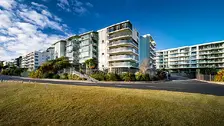Auckland vs Regional NZ: Where Should You Buy Your First Investment Property?
 By
Trent Bradley
·
16 minute read
By
Trent Bradley
·
16 minute read

For aspiring property investors making their first purchase, one of the most consequential decisions is whether to invest in Auckland, New Zealand's largest city and economic powerhouse, or target regional centers offering better affordability and rental yields. This decision shapes everything from deposit requirements to cash flow positions, capital growth prospects, and long-term wealth accumulation trajectories.
Key Takeaways
- Auckland requires $360,000+ deposits (40% of $900,000+ properties) with $20,000-$25,000 annual negative cash flow but delivers superior long-term appreciation (6-8% annually versus 3-5% in regional areas)—$609,000 more equity over 10 years in example comparison
- Regional properties require $220,000 deposits (40% of $550,000 properties) with $9,000-$12,000 annual negative cash flow offering 4.5-6% gross yields versus Auckland's 3-4%, creating more manageable cash flow for moderate-income investors
- Historical data shows $550,000 property appreciating at 4% annually reaches $811,000 in 10 years, while same property appreciating at 7% reaches $1.08 million—a $269,000 difference from appreciation rate variance alone
- Auckland dominates with 38% of NZ's GDP despite 32% of population, creates deep liquid markets with diverse tenant demographics, but faces geographic supply constraints and intense investor competition
- Regional centers offer earlier market entry (starting property investment years earlier means more time for compounding), less competition, simpler markets to understand, and diversification options across multiple locations
- Economic concentration risks in regional areas—many centers depend heavily on specific industries or employers creating vulnerability if major employers downsize or close
- First-time investors should match strategy to capital availability, income stability, investment timeline (15-20+ years favors Auckland growth; shorter timelines favor regional yields), risk tolerance, market knowledge, and life stage
At Luminate Financial Group, we regularly guide first-time investors through this decision. The answer isn't universal – Auckland suits some investors perfectly while regional investment proves optimal for others based on their financial capacity, investment goals, risk tolerance, and personal circumstances.
The Auckland versus regional debate generates strong opinions. Auckland advocates point to superior long-term capital growth, economic strength, and market depth. Regional proponents emphasize affordability, better cash flow, and reduced competition. Both perspectives contain truth, and both strategies have created wealth for countless investors.
Let's explore this decision comprehensively, examining the advantages and challenges of each approach to help you determine where your first investment property should be.
The Case for Auckland Investment
Auckland dominates New Zealand's economy, population, and property market. Understanding its investment appeal requires examining its unique characteristics and advantages.
Why Auckland Attracts Property Investors
Unmatched Economic Strength: Auckland generates approximately 38% of New Zealand's GDP despite housing only 32% of the population. This economic concentration reflects Auckland's role as the country's commercial, financial, and business center.
Major corporations headquarter in Auckland. Professional services concentrate there. High-paying jobs cluster in the city. This economic strength drives property demand through employment growth and income levels supporting premium housing costs.
Superior Long-Term Capital Growth: Historical data shows Auckland consistently delivering New Zealand's strongest long-term residential property appreciation. Over multiple decades, Auckland properties have typically appreciated 6-8% annually on average, outperforming most regional centers.
While Auckland experiences periodic corrections or flat periods, the long-term trajectory shows reliable appreciation driven by sustained demand pressure against constrained supply.
Population Growth: Auckland's population exceeds 1.7 million and continues growing through natural increase and net migration. As New Zealand's international gateway, Auckland attracts disproportionate shares of immigrants, including skilled migrants with professional qualifications seeking employment in Auckland's economy.
Population growth drives housing demand at all levels – ownership and rental markets both benefit from demographic expansion.
Supply Constraints: Auckland faces severe geographic constraints limiting development. Water to the east (Hauraki Gulf), harbor to the north, rural growth boundary restrictions, and challenging topography create natural and regulatory barriers preventing unlimited sprawl.
These constraints support property values through scarcity. While intensification proceeds, supply struggles to keep pace with demand, creating persistent upward pressure on values.
Deep, Liquid Market: Auckland's property market offers depth and liquidity absent in smaller markets. Properties sell reliably with reasonable marketing. Multiple buyers typically compete for quality properties. When selling time comes, Auckland offers larger buyer pools and more predictable sale processes.
International Appeal: Auckland's international city status creates demand from overseas buyers (within regulatory frameworks), returnee New Zealanders, and domestic migrants from other regions seeking opportunities in the largest city.
Infrastructure Investment: Ongoing major infrastructure projects including City Rail Link, rapid transit network expansions, new highway connections, and substantial urban development demonstrate commitment to accommodating growth and improving liveability.
Diverse Tenant Demographics: Auckland offers every tenant type imaginable – young professionals, families, students, corporate executives, and international workers. This diversity reduces vacancy risk as properties appeal to multiple demographics.
The Auckland Challenges
High Purchase Prices: Auckland's median house price exceeds $1 million in many suburbs, with desirable areas commanding $1.2-$1.5 million+. Even modest properties in less central locations often cost $800,000-$900,000.
For first-time investors, these prices create substantial barriers. A $900,000 property requires approximately $360,000 deposit under current 40% LVR requirements, plus purchase costs totaling perhaps $370,000-$380,000 capital.
Many aspiring investors simply cannot accumulate deposits of this magnitude within reasonable timeframes.
Low Rental Yields: Auckland's premium prices generate low rental yields, typically 3-4% gross in most suburbs, sometimes falling to 2.5-3.5% in premium areas. After expenses, net yields often reach only 1-2%.
Example: A $950,000 Auckland property renting for $750 weekly generates $39,000 annual rent (4.1% gross yield). After rates, insurance, maintenance, and property management totaling approximately $13,000, net income is $26,000. With an $760,000 mortgage at 6.5%, annual interest costs $49,400, creating negative cash flow of $23,400 annually or approximately $1,950 monthly.
This substantial negative cash flow requires stable, significant income to sustain.
Intense Competition: Auckland attracts investors from across New Zealand and internationally (within restrictions). Quality properties receive multiple offers, often selling above asking prices. First-time investors face experienced competition with superior financial resources.
Complex Market: Auckland encompasses enormous geographic variety from central city to distant suburban sprawl. Identifying optimal suburbs requires extensive research and local knowledge. Suburbs just kilometers apart can perform dramatically differently.
Higher Ongoing Costs: Everything costs more in Auckland including property rates, insurance premiums, maintenance and repairs, and property management fees. These higher costs further compress already-thin cash flow margins.
Who Should Consider Auckland for First Investment?
Auckland suits first-time investors with high stable income enabling substantial cash flow subsidies ($15,000-$25,000+ annually), substantial deposit capital ($350,000-$400,000+), long investment horizons (15+ years), focus on capital growth over immediate income, understanding and acceptance of negative cash flow reality, and capacity to weather market volatility.
If you have limited capital, require positive cash flow, or cannot comfortably subsidize properties for years, Auckland likely doesn't suit your first investment regardless of its long-term growth potential.
The Case for Regional Investment
Regional New Zealand encompasses everywhere outside Auckland, from major cities like Hamilton and Tauranga to smaller provincial centers. Understanding regional investment requires recognizing the diversity within this category.
Why Regional Investment Appeals
Affordability: Regional property prices typically range $400,000-$700,000 for investment-grade properties, dramatically below Auckland levels. This affordability enables earlier market entry and lower deposit requirements.
A $550,000 regional property requires approximately $220,000 deposit (40% LVR) plus costs, totaling perhaps $230,000 capital – substantially less than Auckland alternatives.
Superior Rental Yields: Regional centers typically deliver gross yields of 4.5-6%+, significantly exceeding Auckland yields. This improved income generation creates better cash flow positions.
Example: A $550,000 regional property renting for $550 weekly generates $28,600 annual rent (5.2% gross yield). After similar expenses of $10,500, net income is $18,100. With a $440,000 mortgage at 6.5%, annual interest costs $28,600, creating negative cash flow of only $10,500 annually or approximately $875 monthly.
This negative cash flow, while still present, is less than half the Auckland example, creating more sustainable positions for moderate-income investors.
Earlier Market Entry: Lower capital requirements enable starting property investment years earlier than if saving for Auckland deposits. Starting earlier means more time for properties to appreciate and mortgages to reduce.
Less Competition: Regional markets face less investor competition than Auckland. Quality properties still attract interest, but you're not competing against dozens of investors with superior resources. First-time investors have better chances securing properties without being outbid.
Simpler Markets: Regional cities are geographically smaller and easier to understand. Learning Hamilton's or Palmerston North's suburb characteristics takes less time than mastering Auckland's complexity.
Lower Ongoing Costs: Rates, insurance, and maintenance costs in regional areas typically run 20-30% below Auckland equivalents, improving cash flow margins.
Positive Cash Flow Potential: In some regional centers, particularly smaller provincial towns, genuine positive cash flow from day one is achievable – something nearly impossible in Auckland currently.
Diversification Options: Regional investment enables diversifying across multiple locations. The capital required for one Auckland property could fund two or three regional properties, spreading geographic risk.
The Regional Challenges
More Modest Capital Growth: Regional centers historically deliver more modest appreciation than Auckland, typically 3-5% annually versus Auckland's 6-8%. Over decades, this difference compounds significantly.
Example: $550,000 property appreciating at 4% annually reaches $811,000 in 10 years. The same property appreciating at 7% reaches $1.08 million – a $269,000 difference from appreciation rate variance alone.
This growth differential dramatically affects long-term wealth accumulation.
Economic Concentration Risks: Many regional centers depend heavily on specific industries or employers. If major employers downsize or close, local property markets suffer through job losses, population decline, and reduced demand.
Single-industry towns are particularly vulnerable. While larger regional cities like Hamilton or Tauranga have diverse economies, smaller centers often lack this protection.
Smaller Buyer Pools: When selling, regional markets offer smaller buyer pools than Auckland. Properties may take longer to sell, potentially achieving lower prices due to limited competition. This reduced liquidity creates exit challenges.
Limited Infrastructure Investment: Regional areas receive less infrastructure investment than Auckland. While major regional centers see ongoing development, it's modest compared to Auckland's massive projects. This infrastructure gap can limit growth potential.
Demographic Constraints: Some regional areas face demographic challenges including aging populations, youth migration to larger centers, and limited skilled worker availability. These demographic headwinds affect long-term property demand.
Bank Lending Caution: Some banks view certain regional properties less favorably than Auckland properties, potentially offering lower maximum LVRs, higher interest rates, or more conservative lending criteria. This affects both your purchase financing and future buyer accessibility.
Variable Quality: Regional housing stock quality varies dramatically. Some areas offer well-maintained properties, others predominantly feature aging, poorly-maintained housing requiring substantial ongoing maintenance.
Who Should Consider Regional Investment?
Regional investment suits first-time investors with moderate capital ($200,000-$300,000 available), moderate income requiring manageable negative cash flow, desire for earlier market entry, preference for simpler, more accessible markets, focus on cash flow alongside growth, and willingness to accept more modest appreciation for better immediate returns.
If capital constraints prevent Auckland investment, regional areas offer viable pathways to starting property investment rather than delaying indefinitely while saving for Auckland deposits.
Comparing Key Metrics: Auckland vs Regional
Let's directly compare typical investment scenarios in each market to illustrate the practical differences.
The Auckland Scenario
Property: Three-bedroom house in middle-tier Auckland suburb
- Purchase price: $950,000
- Required capital: $380,000 (40% deposit) + costs
- Weekly rent: $750
- Annual rental income: $39,000
- Annual expenses: $13,000
- Net rental income: $26,000
- Mortgage (80% of value): $760,000 at 6.5% interest-only
- Annual mortgage cost: $49,400
- Annual cash flow: -$23,400 (negative)
- Gross rental yield: 4.1%
- Net rental yield: 2.7%
- Estimated annual appreciation: 6.5%
- Estimated 10-year value: $1,784,000
- Estimated 10-year equity: $1,024,000+ (after some principal reduction)
The Regional Scenario (Hamilton Example)
Property: Three-bedroom house in middle-tier Hamilton suburb
- Purchase price: $550,000
- Required capital: $220,000 (40% deposit) + costs
- Weekly rent: $550
- Annual rental income: $28,600
- Annual expenses: $9,000
- Net rental income: $19,600
- Mortgage (80% of value): $440,000 at 6.5% interest-only
- Annual mortgage cost: $28,600
- Annual cash flow: -$9,000 (negative)
- Gross rental yield: 5.2%
- Net rental yield: 3.6%
- Estimated annual appreciation: 4.5%
- Estimated 10-year value: $855,000
- Estimated 10-year equity: $415,000+ (after some principal reduction)
The Comparison Analysis
The Auckland property requires $160,000 more initial capital, generates $14,400 more annual negative cash flow, but produces approximately $609,000 more equity over 10 years through superior appreciation.
The regional property offers earlier accessibility, more manageable cash flow, but builds substantially less wealth over the decade through more modest appreciation.
Strategic Considerations Beyond Pure Numbers
Several factors beyond financial calculations should influence your Auckland versus regional decision.
Your Personal Connection and Knowledge
If you live in Auckland, understand the market intimately, and have local networks, Auckland investment involves less learning curve and risk than investing in unfamiliar regional areas.
Conversely, if you live in Hamilton, Tauranga, or Christchurch, investing locally leverages existing knowledge and eliminates distance management challenges.
Investing successfully requires market understanding. Favor locations you know over locations offering theoretically better returns in markets you don't understand.
Management Considerations
Auckland properties while you live in Wellington, or regional properties while living in Auckland, requires distance management through property managers. While doable, distance reduces your ability to inspect properties, address issues personally, or develop local market expertise.
First-time investors often benefit from investing locally where they can inspect properties easily, meet property managers in person, and develop market knowledge organically.
Portfolio Strategy and Progression
Your first investment needn't be your only investment. Many investors start regionally due to capital constraints, build equity over 5-7 years, then leverage that equity to enter Auckland markets while retaining regional holdings.
This progression strategy captures regional accessibility for market entry while eventually accessing Auckland growth potential as resources allow.
Alternatively, some investors start with Auckland properties during strong savings periods, then add regional properties later for cash flow diversification as portfolios mature.
Risk Tolerance and Psychology
Auckland's substantial negative cash flow and high leverage create ongoing financial pressure. You must be psychologically comfortable subsidizing $20,000+ annually for potentially a decade before cash flow improves.
If this financial commitment creates excessive stress affecting your wellbeing or commitment, regional investment offering more manageable cash flow may prove more sustainable despite lower growth potential.
Sustainable investment strategies matter more than theoretically optimal strategies you cannot maintain psychologically.
Life Stage and Timeline
Younger investors (20s-30s) with long horizons often benefit from prioritizing Auckland's growth potential despite near-term cash flow challenges. Decades ahead allow recovering from any short-term issues while maximizing long-term wealth.
Older first-time investors (45+) with shorter timelines to retirement might prioritize regional markets' better cash flow, accepting reduced growth for improved sustainability and earlier income generation.
Income Trajectory Expectations
If you expect significant income growth in coming years (career advancement, business growth, partner's income increasing), Auckland's negative cash flow becomes more manageable as income rises.
If income is stable or uncertain, committing to substantial ongoing subsidies creates vulnerability. Regional investment's lower cash flow demands provide better risk management.
The Hybrid Approach: Can You Do Both?
Some first-time investors wonder whether buying properties in both Auckland and regional areas simultaneously provides diversification benefits.
Joint or Syndicated First Purchases
If you have sufficient capital and can access financing for multiple properties, purchasing both Auckland and regional properties simultaneously captures benefits of both strategies while diversifying risk.
However, first-time investors rarely have capital for multiple properties. Most must choose one or the other initially.
Partnering Strategies
Some investors partner with others to co-invest in Auckland properties while individually purchasing regional properties, or vice versa. This approach enables accessing Auckland with shared capital while maintaining individual regional investments.
Partnerships introduce complexity around ownership, decision-making, and exit strategies, but can solve capital constraints preventing Auckland entry.
Making Your Decision
Several questions help clarify whether Auckland or regional investment suits your first purchase better.
Capital availability: Do you have $350,000+ available for deposits and costs? If yes, Auckland becomes feasible. If not, regional investment offers more realistic entry.
Income stability and level: Can you comfortably subsidize $18,000-$25,000 annually indefinitely? If yes, Auckland's negative cash flow is manageable. If not, regional markets offer better sustainability.
Investment timeline: Are you investing for 15-20+ years? Long timelines favor Auckland's superior growth. Shorter timelines make regional yields more appealing.
Risk tolerance: Can you psychologically handle substantial ongoing subsidies and high leverage? High tolerance supports Auckland. Lower tolerance favors regional.
Market knowledge: Do you understand Auckland or regional markets better? Invest where you have knowledge advantage.
Life stage: Are you under 35 with decades ahead? Auckland's growth potential matters most. Over 45 approaching retirement? Regional income generation becomes more valuable.
Priority: growth or income: If maximizing long-term wealth is paramount, Auckland typically wins. If generating income alongside growth matters, regional markets excel.
The Luminate Financial Group Perspective
At Luminate Financial Group, we help first-time investors make Auckland versus regional decisions based on comprehensive financial analysis rather than generic rules.
For investors with substantial capital ($350,000+), high stable income, long timelines, and growth focus, Auckland often represents the optimal first investment despite cash flow challenges. The superior long-term appreciation typically compensates for years of subsidies, building greater wealth over investment lifetimes.
However, we recognize that most first-time investors don't fit this profile. Limited capital, moderate income, or inability to sustain large ongoing subsidies makes regional investment more practical and sustainable for the majority of first-time property investors.
Regional investment enables starting your property investment journey years earlier than if waiting to accumulate Auckland deposits. Earlier entry means more time for compounding, more years of learning investment skills, and earlier access to the wealth-building benefits of property investment.
We also observe that the "perfect" first investment matters less than simply starting with a sound investment in any reasonable location. Investors who defer starting indefinitely while seeking optimal locations often build less wealth than those who start with good-enough properties in accessible markets and learn through experience.
Your first investment property is unlikely to be your last. It's your entry into property investment, not your retirement plan in isolation. Focus on starting with sound fundamentals in markets you can afford rather than paralysis seeking perfection.
Many successful property investors built wealth starting with regional properties, accumulating equity over 5-10 years, then expanding to Auckland or maintaining diversified portfolios spanning both Auckland and regional holdings. This progression model works excellently for investors with capital constraints preventing Auckland entry initially.
The Auckland versus regional decision isn't about which is universally superior – it's about which suits your current financial capacity, goals, and circumstances better. Make decisions based on honest assessment of your position rather than aspirational thinking about what you wish you could afford.
If Auckland is feasible and aligns with your goals and capacity, pursue Auckland investment confidently. If regional investment represents your accessible entry point, embrace regional opportunities without viewing them as "settling" or second-best. Both strategies have created substantial wealth for countless New Zealand investors.
Start where you can start, with properties meeting sound investment criteria in markets you understand, aligned with your financial capacity and goals. Build experience, accumulate equity, and expand your portfolio strategically over time. The specific location of your first investment matters far less than simply beginning your property investment journey thoughtfully and sustainably.
The best first investment property is the one you can afford to purchase and hold through market cycles while maintaining your financial sustainability and psychological wellbeing. Whether that property is in Auckland or regional New Zealand depends entirely on your unique situation.
Frequently Asked Questions
What are the main financial differences between Auckland and regional property investment?
Auckland properties typically cost $900,000-$1.2M+ requiring $360,000-$480,000 deposits (40% LVR) plus costs, generate 3-4% gross yields (2.7% net after expenses), and create $18,000-$25,000 annual negative cash flow but deliver 6-8% average annual appreciation historically. Regional properties typically cost $400,000-$700,000 requiring $160,000-$280,000 deposits, generate 4.5-6% gross yields (3.5-4.5% net), create $8,000-$12,000 annual negative cash flow, but deliver more modest 3-5% appreciation. Over 10 years, example $950,000 Auckland property appreciating at 6.5% builds approximately $1,024,000+ equity, while $550,000 regional property appreciating at 4.5% builds approximately $415,000+ equity—$609,000 difference. Auckland requires $160,000 more initial capital and generates $14,400 more annual negative cash flow but produces substantially more long-term wealth through superior appreciation.
How do rental yields compare between Auckland and regional markets?
Auckland gross rental yields typically range 3-4% in most suburbs, sometimes falling to 2.5-3.5% in premium areas, with net yields after expenses often reaching only 1-2%. For example, a $950,000 Auckland property renting for $750 weekly generates $39,000 annual rent (4.1% gross yield), but after $13,000 expenses nets only $26,000 (2.7% net yield). Regional gross yields typically range 4.5-6%+ with net yields of 3.5-4.5%. A $550,000 regional property renting for $550 weekly generates $28,600 annual rent (5.2% gross yield) with $19,600 after $9,000 expenses (3.6% net yield). This 1-2 percentage point yield advantage in regional areas translates to substantially better cash flow positions—regional properties often create half the negative cash flow of Auckland equivalents, making them more sustainable for moderate-income investors despite lower absolute rental income.
Who should invest in Auckland for their first property?
Auckland suits first-time investors with high stable income ($100,000-$150,000+ individually or combined with partner) enabling substantial cash flow subsidies of $18,000-$25,000+ annually, substantial deposit capital ($360,000-$400,000+), long investment horizons (15-20+ years allowing time to recover from short-term issues), clear focus on capital growth over immediate income, understanding and acceptance of negative cash flow reality for potentially a decade, psychological capacity to handle substantial ongoing subsidies and high leverage, and either Auckland residency providing local market knowledge or willingness to invest significant time learning Auckland's complex market. If you have limited capital (under $300,000), require positive or neutral cash flow, cannot comfortably subsidize properties for years, or have shorter timelines, Auckland likely doesn't suit your first investment regardless of its long-term growth potential. Auckland's superior appreciation rewards patient capital deployed by financially strong investors who can sustain positions through market cycles.
Who should consider regional investment for their first property?
Regional investment suits first-time investors with moderate capital ($200,000-$300,000 available for deposits and costs), moderate income ($70,000-$120,000) requiring manageable negative cash flow they can sustain comfortably, desire for earlier market entry rather than spending years saving for Auckland deposits, preference for simpler, more accessible markets easier to understand than Auckland's complexity, focus on cash flow alongside growth accepting more modest appreciation for better immediate returns, lower risk tolerance uncomfortable with Auckland's substantial ongoing subsidies, residence in regional areas providing local market knowledge, and shorter investment timelines where generating income alongside growth matters more than maximizing long-term wealth. Regional investment enables starting property investment years earlier—earlier entry means more time for compounding, more years learning investment skills, and earlier access to wealth-building benefits. If capital constraints prevent Auckland investment, regional areas offer viable pathways rather than delaying indefinitely.
How does appreciation rate difference affect long-term wealth building?
Appreciation rate variance compounds dramatically over time creating enormous wealth differences. A $550,000 property appreciating at 4% annually (typical regional) reaches $811,000 in 10 years building approximately $261,000 equity. The same property appreciating at 7% annually (typical Auckland) reaches $1.08 million building approximately $530,000 equity—$269,000 more from appreciation variance alone. Over 20 years, these differences multiply: 4% appreciation reaches $1.2 million, while 7% reaches $2.13 million—$930,000 difference. Over 30 years: 4% reaches $1.78 million, 7% reaches $4.18 million—$2.4 million difference. This compounding explains why Auckland's superior long-term appreciation (historically 6-8% versus regional 3-5%) dramatically outweighs better regional cash flow for investors with long horizons and capacity to sustain negative cash flow. However, this assumes maintaining investments through complete cycles—investors forced to sell during downturns due to unsustainable cash flow lose growth advantages.
What are the main risks of regional property investment?
Critical regional risks include more modest capital growth (3-5% versus 6-8% in Auckland) dramatically affecting long-term wealth accumulation, economic concentration where many centers depend heavily on specific industries or employers (closures causing job losses, population decline, reduced demand), smaller buyer pools creating exit challenges with properties taking longer to sell potentially at lower prices, limited infrastructure investment compared to Auckland's massive projects potentially limiting growth, demographic constraints in some areas (aging populations, youth migration to larger centers, limited skilled worker availability), bank lending caution with some institutions viewing certain regional properties less favorably (lower LVRs, higher rates, conservative criteria), and variable housing stock quality with some areas featuring predominantly aging, poorly-maintained properties. Single-industry towns face particular vulnerability. However, larger regional cities like Hamilton, Tauranga, or Christchurch with diverse economies, multiple major employers, and strong fundamentals mitigate many of these risks while retaining affordability and yield advantages.
Can I invest in both Auckland and regional properties simultaneously?
If you have sufficient capital and can access financing for multiple properties (typically requiring very substantial resources), purchasing both Auckland and regional properties simultaneously captures benefits of both strategies—Auckland growth potential plus regional cash flow and diversification. However, first-time investors rarely have capital for multiple properties initially (requiring perhaps $500,000-$600,000+ total capital). Most must choose one or the other for their first purchase. Alternative approaches include partnering with others to co-invest in Auckland properties while individually purchasing regional properties (introduces complexity around ownership, decision-making, and exit strategies but solves capital constraints), or implementing progression strategies starting regionally due to capital constraints, building equity over 5-7 years, then leveraging that equity to enter Auckland markets while retaining regional holdings. Many successful investors built wealth through this progression model—starting where capital allows, accumulating equity, then strategically expanding to capture different market benefits over time.
Should I prioritize location perfection or just start investing?
The "perfect" first investment matters less than simply starting with a sound investment in any reasonable location. Investors who defer starting indefinitely while seeking optimal locations often build less wealth than those who start with good-enough properties in accessible markets and learn through experience. Your first investment property is unlikely to be your last—it's your entry into property investment, not your retirement plan in isolation. Focus on starting with sound fundamentals (solid location fundamentals, appropriate property type, sustainable cash flow position) in markets you can afford and understand rather than paralysis seeking perfection. Both Auckland and regional strategies have created substantial wealth for countless New Zealand investors—the critical success factor is starting thoughtfully and sustainably, then building experience and expanding portfolios over time. The best first investment is the one you can afford to purchase and hold through market cycles while maintaining financial sustainability and psychological wellbeing, whether that's Auckland or regional New Zealand.

Trent Bradley
Trent Bradley is a New Zealand financial advisor specializing in property-backed finance and investment consulting. With over 26 years of experience running his mortgage broking business, he has helped wholesale investors access high-yield property-backed loan opportunities. For the past 12 years, Trent has led Luminate Finance, a New Zealand finance company dedicated to connecting investors with secure property investment solutions.





































